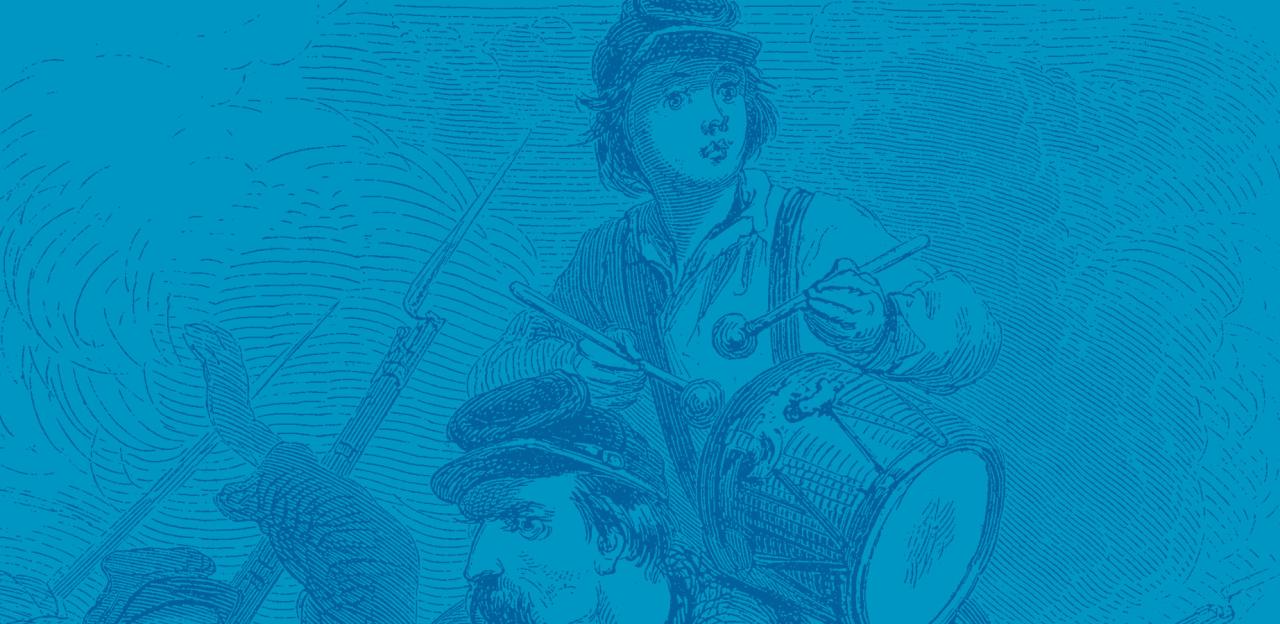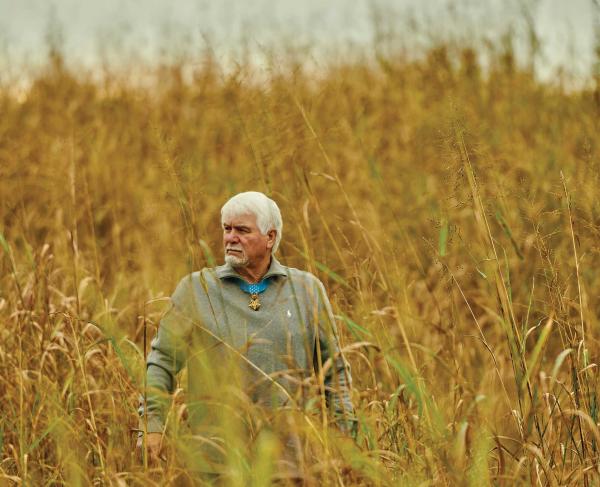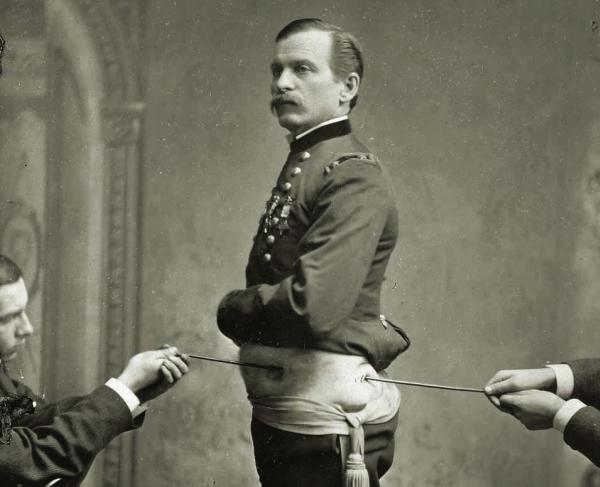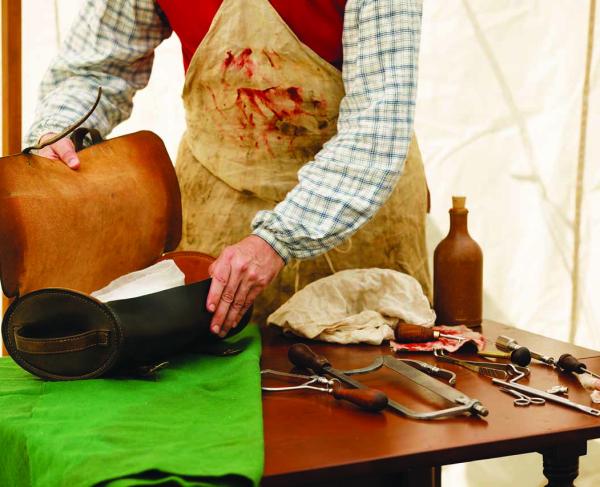Bob Rinehart

Bob Rinehart grew up in York, Pennsylvania, and received his Bachelor's degree at York College of PA. He received his Master’s Degree at Loyola College of Maryland. Before attending college he worked in mass communication and television production for Cable-4-York. He has been teaching for 19 years - two years at Edgewood Middle School and seventeen years at Southampton Middle School (Bel Air, MD).
He got into teaching because he absolutely loves history. His family gave him opportunities to go to historic locations such as Gettysburg and Washington D.C. (as well as historic sites in and around York, PA). As a child he read history books and was encouraged to watch historic movies that were on television.
"My social studies teachers in middle and high school were excellent," Mr. Rinehart says. "They were able to take my already existing love of history and teach me new historic material and perspectives. In addition, my eleventh grade social studies teacher was a Civil War reenactor and he taught a campsite lesson outside to us, in full uniform." He also remembers that his seventh and eighth grade social studies teacher became a mentor to him over the years. Mr. Rinehart eventually worked with him as a student teacher in the spring of 1994. "I just wanted to give my students what these amazing teachers were able to give me," he explains. "An education!"
Mr. Rinehart has organized fourteen student field trips to Gettysburg. Every time the students go on one of his field trips they complete a Scavenger Hunt that focuses on the Visitor Center and the battlefield. He has attended several Civil War Trust Teacher Institutes, Annual Conferences, and other events over the past thirteen years to support American Civil War battlefield preservation. As of June 2008, his school has donated $23,700 to the Civil War Trust for battlefield preservation. In 2004 he was declared the Preservationist Teacher of the Year by the Civil War Trust, and in 2010 he was awarded the Chairman's Award by Mr. John Nau.
He also accompanied ten students to testify to a committee of State Delegates in Annapolis, MD about creating a "Remembrance Day" so as not to forget the attacks of September 11, 2001.
"One of my seventh grade social studies teachers was talking about saving the whales when I was in her class," he remembers. "I never thought about preserving something that I thought would be on this planet forever." Since that time he has been very involved in historic preservation - from artifacts that remind him of his upbringing, to community activities in his home town while working for Cable-4 in York, to Civil War battlefields. "When I became a teacher, I relied on the American Civil War history of my family to inspire the students to begin preserving Civil War battlefields," he says.
He believes that activity related projects outside the classroom allow students the opportunity to see how important their efforts are to other American citizens. He explains: "When we travel to Gettysburg, the students meet people from all over the United States and the world who have traveled to this hallowed ground to experience history. In addition," he continues, "the students gain new perspectives about the historic importance of the battle and the war, about the topography of the land, and about preservation efforts. They are able to walk the same ground as many historic figures. These are figures they have read about in books or researched online, figures such as Meade, Lee, Lincoln, Longstreet, and so on."
Mr. Rinehart has plenty of advice for history and social studies teachers. "First," he says, "always let your students know that you are passionate about the social studies curriculum you are teaching. You do not have to announce that you are passionate. They should be able to pick up on this trait by your actions." Second, he continues, "make your curriculum relevant to your students. Use stories from today to connect to your social studies timeline. Use your timeline to connect to today." Finally, "take a field trip," he advises. "Allow the students the opportunity to travel to a location that connects to your curriculum. Once you are at the site, have a scavenger hunt or some type of relevant work for them to accomplish as a group. Review this information with them over the next few days in class. Don't just take them on a field trip and have them run wild and get nothing educational from the trip." He makes the last point after having witnessed some less-than-productive Gettysburg field trips taken by other schools.
He also has three pieces of advice for beginning teachers. "First, master your classroom," he states. "If you cannot maintain proper classroom management, the students will not learn the curriculum. Second, give respect, get respect. Do not try to be their friends. You must maintain your teacher / facilitator identity in order to provide a proper learning environment for all students." "Third," he continues, "have fun every day because you are getting the opportunity to educate the next generation of Americans."


